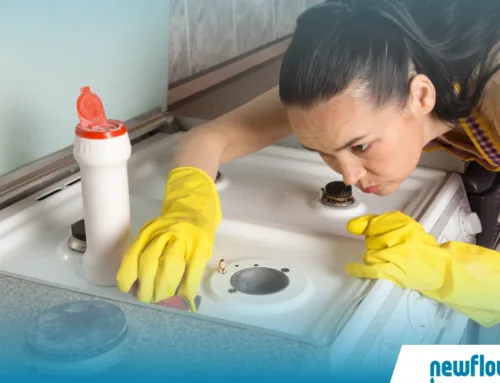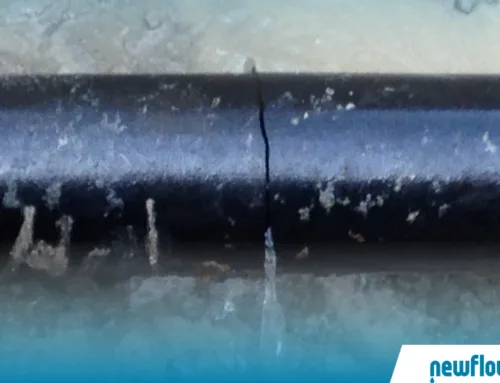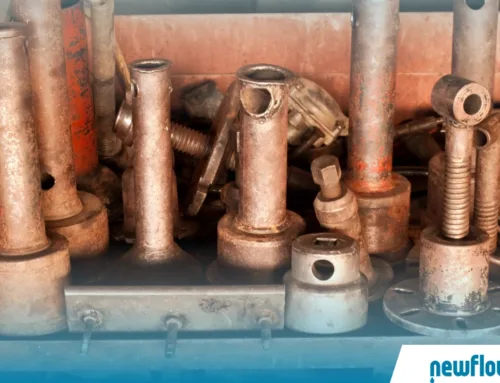When your water heater stops working, it can bring your daily routine to a halt. From cold morning showers to dishes that won’t get clean, hot water is something we all rely on. But when things go wrong, who should you call—an electrician or a plumber? This guide will help you figure out exactly who to call, what signs to look for, and what steps to take when your water heater isn’t doing its job. Whether you live in Sacramento or nearby areas, this article will help you make smart decisions fast, avoid costly mistakes, and restore hot water in your home quickly and safely.
How Water Heaters Work (And Why They Fail)
Your water heater is one of the most important appliances in your home, but it’s also one of the most overlooked. Whether you have a gas or electric unit, all water heaters do the same basic job: heat water and send it to your faucets, showers, and appliances.
Most units have a lifespan of 8 to 12 years, depending on the type and how well they’re maintained. But even with proper care, parts wear out. Heating elements break, sediment builds up, and connections loosen over time.
If your water heater is older than 8 years, it’s a good idea to start watching for signs of trouble before it fails. Catching problems early saves time, money, and a lot of cold showers.
Signs Your Water Heater Needs Repair
Sometimes, a broken water heater stops working completely. But in many cases, you’ll notice smaller issues first. Here are the most common warning signs homeowners search for:
- No hot water or it takes too long to heat up
- Water is rusty or discolored
- Strange noises, like popping, rumbling, or whistling
- Leaking around the base of the unit
- Inconsistent water temperature
- Low hot water pressure
- Pilot light won’t stay lit (for gas units)
- Error codes on digital units
- Burnt smell or tripped breaker (for electric units)
These issues often mean a repair is needed. But depending on the cause, you may need to call a plumber, an electrician, or sometimes both.
Plumber vs. Electrician: Who Should You Call?
This is one of the most common questions homeowners ask when their water heater fails. Here’s a simple way to decide:
- Call a plumber if you suspect the issue is related to water, leaks, pressure, corrosion, heating elements, or tank damage.
- Call an electrician if you think the issue involves wiring, circuit breakers, fuses, or electrical controls.
If you’re unsure, start with a plumber. Most are trained to identify whether an issue is plumbing-related or requires an electrician. If needed, they can refer you or coordinate with one.
Common Water Heater Problems a Plumber Fixes
Plumbers specialize in diagnosing and repairing all water-related issues, and that includes most water heater problems. Here are some of the top things a plumber can fix:
- Leaking tank or pipe connections
- Faulty pressure relief valves
- Sediment buildup in the tank
- Damaged or broken dip tubes
- Malfunctioning thermostats or heating elements
- Rusty water from corroded anode rods
- Pilot light issues for gas heaters
- No hot water due to plumbing blockages or internal damage
If your unit is beyond repair or over 10 years old, a plumber can also help you choose and install a replacement.
Water Heater Issues That Require an Electrician
Although plumbers handle most water heater repairs, some problems point directly to electrical faults. Here’s when an electrician is the better choice:
- The water heater trips the breaker repeatedly
- The breaker won’t reset after tripping
- Burnt smell or visible burned wiring
- No power to the water heater despite working outlets nearby
- Electric thermostat malfunction
- Wiring is loose, exposed, or disconnected
In newer water heaters with smart controls or digital displays, electrical problems may show as blinking error lights or “no power” messages. These are best handled by a licensed electrician.
When You Might Need Both a Plumber and an Electrician
Some complex repairs may require both trades, especially when:
- Upgrading from a gas to an electric water heater
- Installing a tankless electric system
- Replacing outdated electrical wiring along with plumbing lines
- Correcting code violations after a home inspection
In these cases, it’s best to work with professionals who can coordinate with each other or provide both services through the same company.
DIY Repair vs. Hiring a Professional
It’s tempting to look up water heater repairs on YouTube, especially if it seems like a “small fix.” But in most cases, it’s not worth the risk.
Here’s why DIY repairs often lead to more problems:
- Risk of electrocution with electric heaters
- Gas leaks or explosions can occur if gas lines are handled incorrectly
- Invalidating your home insurance or warranty
- Hidden problems you may not notice until it’s too late
- Possible water damage to your home from leaks or flooding
Hiring a licensed plumber or electrician ensures repairs are done safely and correctly. In many cases, they can fix the issue faster than you’d expect, saving you time, hassle, and money.
Who Installs New Water Heaters?
Plumbers are typically the go-to professionals for water heater installation. They’ll help you:
- Choose the right unit for your home size, water usage, and budget
- Remove the old unit safely
- Install the new heater and make all necessary water and gas/electric connections
- Test the system to make sure everything works properly
- Meet local plumbing and building codes
Whether you’re replacing an old tank model or upgrading to a tankless system, your plumber will guide you through every step. If you’re switching to a different power source (gas to electric or vice versa), an electrician may also be needed to install a dedicated line or update your panel.
What to Expect During a Water Heater Service Call
If you’ve never had a water heater repaired before, here’s what usually happens:
- Inspection: The technician will ask about the problem and inspect your unit.
- Diagnosis: They’ll test the heater, check for leaks, and inspect key components.
- Repair or Replace: They’ll explain your options. Some issues may be fixed on the spot; others may need parts or full replacement.
- Estimate: You’ll receive a written estimate before work begins.
- Repair Work: The technician completes the repair or installation and tests the unit.
Most service calls take 1 to 3 hours, depending on the issue.
Tips to Prevent Water Heater Breakdowns
You can’t stop wear and tear completely, but regular maintenance can keep your water heater running longer and better. Here’s how:
- Flush the tank once a year to remove sediment buildup
- Test the pressure relief valve yearly
- Check for rust or corrosion around connections
- Replace the anode rod every 3 to 5 years
- Set the thermostat to 120°F to avoid overheating
- Inspect your unit annually or have a plumber do it for you
Just a little upkeep can add years to your water heater’s life and help avoid sudden breakdowns.
Choosing the Right Type of Water Heater for Your Home
If you’re replacing your current water heater, consider your long-term needs. Here are a few options:
- Conventional tank heaters: Cost less upfront and are easier to install
- Tankless heaters: Use less energy and give endless hot water
- Heat pump water heaters: More energy-efficient but need more space
- Gas vs. electric: Gas units heat faster; electric units are safer and easier to install
A plumber can help you compare the pros and cons based on your home size, hot water demand, energy efficiency goals, and budget.
Final Thoughts: Act Early to Save Money and Avoid Cold Showers
When your water heater stops working, it can quickly become an emergency. But many warning signs show up long before the hot water disappears completely. Strange sounds, water that smells or looks rusty, or changes in temperature or pressure should not be ignored.
Knowing whether to call a plumber or an electrician is key. Plumbers handle most water heater problems, while electricians step in when wiring or circuit breakers are the issue. In some cases, both are needed—especially if you’re installing a new unit or upgrading your system.
If your water heater is acting up, don’t wait. The sooner you call a professional, the better your chances of a quick and affordable fix







![How Much Does a Plumber Cost in Sacramento? [Pricing Guide]](https://plumbersacramento247.com/wp-content/uploads/2025/08/How-Much-Does-a-Plumber-Cost-in-Sacramento-1-500x383.jpg)



